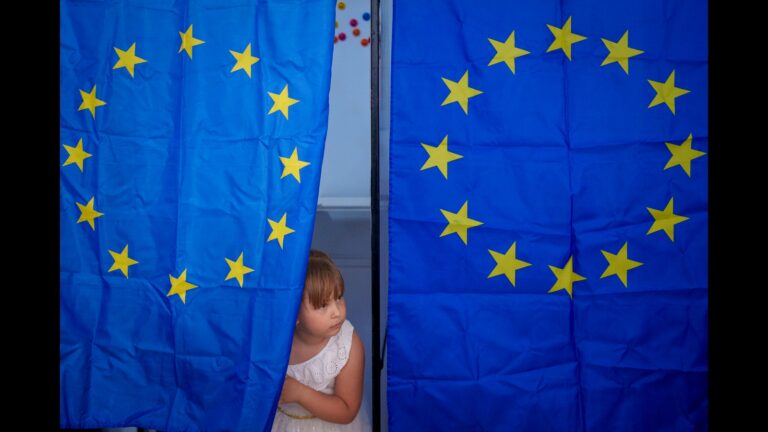There has been widespread unrest over the right-wing shift in the European Union (EU) elections held June 6-9. The EU elections are the largest democratic elections in the world after India. There are around 361 million eligible voters in Europe, of whom 51% voted.
But the rise of the far-right is only part of the story, and centrists are faring better. Indeed, the European People’s Party (EPP) has gained seats. Its partners, the Socialists and Democrats, have had ups and downs in their countries, but have not suffered major losses. The bigger hit has been the pro-business Renew party, whose key members are the party of French President Emmanuel Macron. The EPP-led European policy has been unable to find a major compromise with what is perceived as a shift to the right. The right-wing party groupings, the European Conservatives and Reformists (ECFR) and the Identity and Democracy (ID) party, won the same number of seats as the EPP.
This gives the impression that Europe has moved towards the far right. This may be true in France, Germany and Austria, but overall it has not translated into a unified policy challenge to Europe’s leading centre-right coalition. The biggest gainer is Giorgia Meloni’s Italian Brotherhood party, which has taken a leading position in Italy. Meloni has thus consolidated his position both at home and in Europe. Similarly, Marine Le Pen’s National Rally won a surprising victory in France, and Macron is calling general elections in an attempt to win back support that has tipped to the far right. In Germany, the far-right Alternative for Democracy came in second behind the Christian Democrats, pushing the ruling Socialist Party into third place. The biggest losers are the Greens.
Two points are noteworthy: The far-right, despite their overall increase in seats, do not share a common policy platform. Meloni and Le Pen have inconsistent policy positions. Similarly, Hungarian Prime Minister Orban and the right-wing in the Nordic countries have not performed as well as expected. Most have domestic problems. On issues such as Ukraine, Meloni and Le Pen have different views. Le Pen is tolerant of Russia, while Meloni supported the EU on Ukraine. Some right-wing parties in Eastern Europe are actually pro-Russia.
Although the far right is more united on immigration, center-right parties often speak in a similar tone and do not have major differences with the far right on this issue. Climate is likely to take a hit as the Greens have lost power in Europe. Also, the climate crisis agenda that the EU aims to implement by 2030 is meeting resistance from domestic electricity consumers, traditional car companies facing the challenge of electric vehicles (EVs), and farmers. High energy costs due to the Ukraine crisis and rural agricultural protests in various countries have shaken confidence in the EU’s ability to respond to public concerns. Security, rising living costs after the Ukraine crisis, and European concerns about immigration have replaced the environment as the main election issues.
Europe’s climate-friendly policies are viewed unpopularly in many European countries, where EU regulations are a pain for idealistic people who face harsh realities.
Does this shift to the right indicate a change in policy toward Russia? No. There will always be pro-Russian elements among Eastern European countries. Le Pen may argue that France should refrain from involvement in the Ukraine crisis. But European Commission President Ursula von der Leyen’s efforts to cultivate the far-right, especially Meloni, will probably help to incorporate them into her own policies and reelection campaign. If that happens, von der Leyen’s commitments to expanding defense posture and budgets, including appointing an EU defense commissioner, will come to the fore. This could allow European countries to unite and build their own defense and financial strength, a hedge against turmoil in Washington DC.
Gurjit Singh is a former ambassador to Germany, Indonesia, ASEAN, Ethiopia and the African Union. Views expressed are personal.

